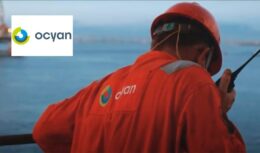
Millions of jobs will be destroyed with new technologies, such as automation and artificial intelligence, and professionals will need to retrain
The covid-19 pandemic and its implications accelerated changes in the labor market that were already happening as a result of the rapid and constant technological innovations that dominated the world from the beginning of the last decade. According to the latest “The Future of Jobs” report published in October 2020 by the World Economic Forum, by 2025, 85 million jobs will be replaced by the shift in the divide between humans and machines. At the same time, 97 million new roles must be created in the wake of technological innovations.
Read also
- Cith the departure of Ford from Brazil, a former metallurgist from the multinational vehicle manufacturer joins PDV, becomes an entrepreneur and opens a mega paint store in SP with space to train professional painters
- Logistics companies and other segments open enrollment for candidates with no experience looking for their first job in SP; some internship and trainee vacancies are 100% home office (remote), candidates from all over Brazil can participate and salaries reach R$ 6.000!
- Brazil inaugurates an unprecedented technological solution for recycling and energy recovery of urban and industrial waste capable of generating up to 2 MW of energy per ton of waste processed
- Company in the expansion phase offers 65 home office and face-to-face job openings in São Paulo with salaries of up to R$20 reais, this August 2nd
This is a challenging scenario for contemporary professionals, who need to acquire knowledge to update themselves in order to adapt to the demands of this new world. An ability of paramount importance for anyone wishing to go through this period successfully, valuing themselves and the companies where they work, is intentional learning, which can be defined as the practice of treating each experience as an opportunity to learn something.
Corporate distance learning institutions are important instruments for professionals with the capacity for intentional learning, as they provide useful knowledge for their professions and their lives, which they will not necessarily find in courses, colleges and universities, representatives of formal education.
Millions of jobs will be destroyed with new technologies such as automation and artificial intelligence, but other opportunities will emerge in the wake of these transformations.
According to the document, The Future of Employment”, it is estimated that, in 2025, 85 million jobs will be replaced by a change in the division of labor between humans and machines, while 97 million new roles will emerge, as they are more adapted to the new division of labor between humans, machines and algorithms.
For Ricardo Shinyashiki, CEO of Gentelab, a startup that develops services and corporate educational content, the current scenario is challenging for the professional of the future, as he needs to acquire knowledge to update himself in order to adapt to the demands of this new world.
In this context, corporate distance learning institutions appear as key pieces as they provide these professionals with useful knowledge of their professions, but which they cannot necessarily find in courses, colleges and universities – the representatives of formal education. These institutions offer content that enables them to perform their job functions efficiently, but also provides them with essential emotional skills for personal and professional development.
Demand for online learning and training quadrupled
Thus, it is better understood why, according to the World Economic Forum report, online learning and training are increasing. According to the document, the number of individuals seeking remote learning opportunities on their own initiative has grown four times compared to the previous report, carried out in 2018.
Companies have also taken the lead in updating their professionals. According to the report, it quintupled employers' provision of online learning opportunities to their workers. Among the most popular courses are personal development and learning digital skills such as data analysis, computer science and information technology.
According to Shinyashiki, for companies, investing in training their professionals has the potential to generate an impact that goes beyond increasing revenue. "The confidence generated in the employee from the company's investment in developing the skills necessary for him to carry out a new activity makes the corporate environment and climate positive, thus favoring the retention of talent and attracting qualified employees", it says.
The CPO of gentalab, Luciana Ogusco, believes that more and more, in addition to content aimed at obtaining technical skills, training focused on culture will be needed, which will allow employees to explore their potential with content that is new to them. “In this sense, digital platforms play a very important role, which is to consolidate this information and generate powerful insights, but mainly to encourage continuous learning”, she explains.
A fine example of encouraging employees to learn more and more is Tech4Teachers, an initiative created by Gentelab in conjunction with Atmo Educação, a company in the educational sector. Alexandre Abbatepaulo, director of Colégio Lourenço Castanho, one of the institutions that make up Atmo Educação, explains that Tech4Teachers was designed and developed so that its teachers learn more and, consequently, also teach better.
“In partnership with Gentelab, we focus on developing professionals of the future, with technological training, who have extensive knowledge of tools that streamline interaction with their students, and who invest in themselves, treating each experience as a learning opportunity,” he says. AbbatePaulo.
With the technological transition, intentional learning becomes a fundamental part of entering the job market
Intentional learning is an extremely important ability for anyone who wants to go through the current period successfully, creating immense value for themselves and the companies where they work. This skill can be defined as the practice of treating every experience as an opportunity to learn something. That is, for those who develop this skill, the desire to learn is never restricted to specific situations, such as regular education, but spreads throughout life as a whole and the various moments that make it up.
In order to acquire and hone this skill that leads to wanting to constantly learn, two mindsets are fundamental: growth and curiosity. Skills that can and should be developed throughout life.
The growth mindset is one that makes people believe that they are constantly evolving and that they can improve and expand their intelligence and other skills over time. For those who develop this type of mindset, there is no such thing as perfection or lack of it. Mistakes and failures, for example, are never seen as limits that cannot be crossed, but as opportunities for development.
Curiosity, in turn, is the substrate of active learning, of the desire to learn how to learn. It helps to overcome the fear of questioning and questioning oneself, making one become aware of something that one ignores. Curiosity is also responsible for the desire to experience unknown situations, which can be stimuli for new learning.
94% of business leaders report that they expect employees to acquire new skills at work and professionals will need to retrain
One of the conclusions drawn from the World Economic Forum report is that, over the next five years, skills gaps will continue to widen as the skills required in jobs change. And to fill these gaps, workers will need to recycle. According to the document, 94% of business leaders report that they expect employees to acquire new skills at work.
Among the key skills and skill sets that employers believe are important for the professional of the future are: critical thinking and analysis and self-management skills such as active learning. It is through this ability to understand what are the gaps in their learning, what knowledge is needed for that occasion, and through the daily exercise of active learning, is that the professional will seek the qualifications that are essential to him.










Air Force F-16 fighters…
True friend, what they shot down were…
Air Force F-16 fighters…
I would like to know what planet you live on…
Air Force F-16 fighters…
Everything is fine, 100-year secrecy,…
Air Force F-16 fighters…
Well... It's flying scrap... Typical...
Air Force F-16 fighters…
Which genocide are you talking about? Than…
I'm just waiting to be released here...
Good evening, I'm a bricklayer, how do I do…
In China there is a dictatorship that…
I'm an electrician and my wife has a degree...
Yes, I would buy it. The price expectation is…
This train was a 4,5…
That's it, Brazil, forward and...
I'm interested in going to work there, if...